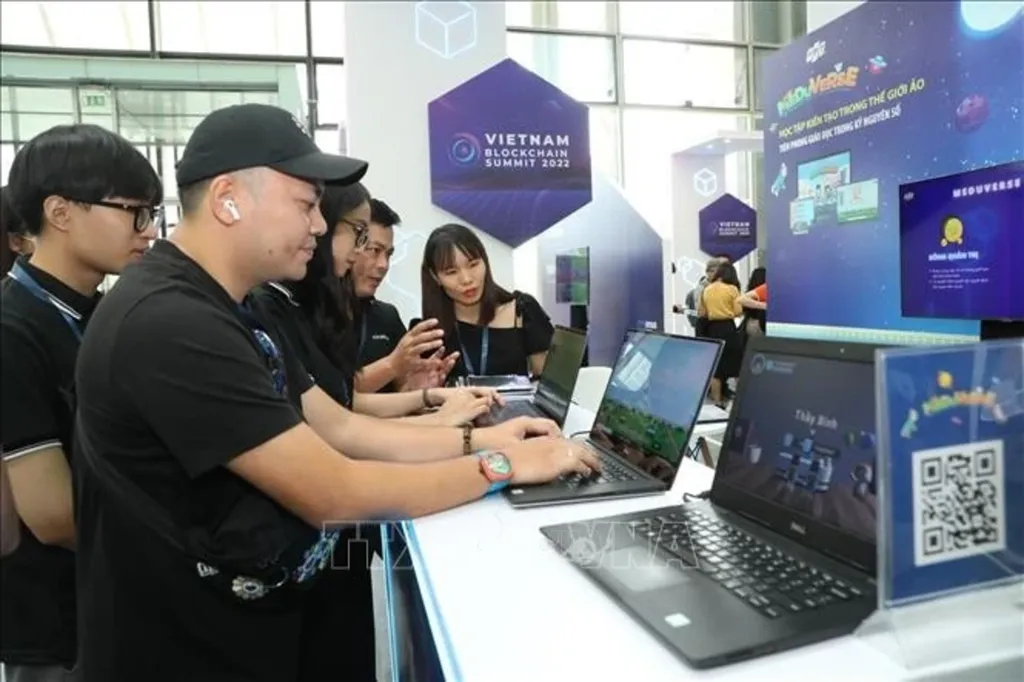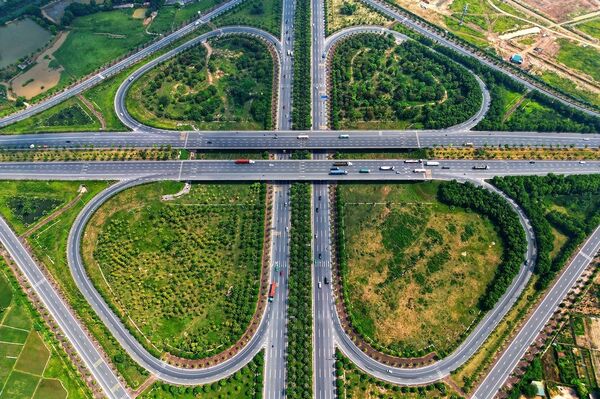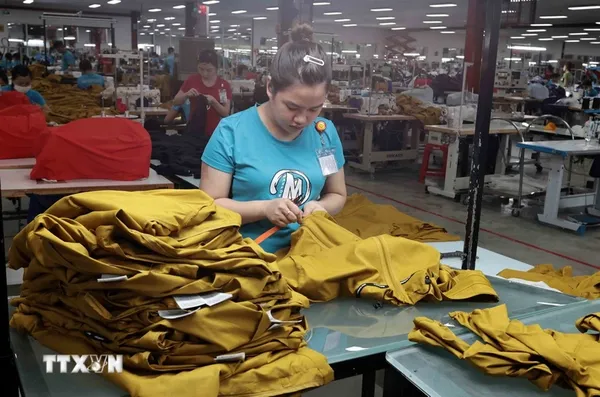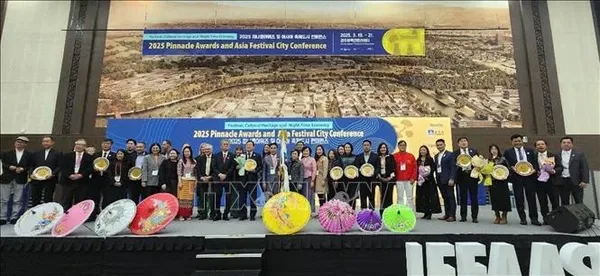 |
| Visitors to a booth introducing technology products at the Vietnam Blockchain Summit 2022. (Illustrative photo: VNA) |
London (VNA) – Assoc. Prof. Dr. Nguyen Dang Bang at the University of Cambridge's Judge Business School has pointed out Vietnam’s key advantages in realising the Politburo’s Resolution 57, which targets breakthroughs in sci-tech, innovation, and national digital transformation.
Talking with the Vietnam News Agency (VNA)'s resident reporter in London, Bang highlighted Vietnam’s advantages such as a young and tech-savvy population, steady economic growth, deep integration into global supply chains across multiple industries, and modern infrastructure like large airports and seaports.
Unlike some countries with large manufacturing bases but still relying on outdated technologies, Vietnam could emerge as a hub for smart manufacturing, particularly in semiconductors, advanced chip production, and cutting-edge fields like quantum computing, he said.
To fully capitalise on these advantages, Bang noted that institutional reform must be a top priority. By turning institutional frameworks into competitive edges, Vietnam can empower scientists with trust, opportunities and encouragement, allowing them to focus on experimentation rather than explaining research projects in early stages, he said, suggesting the Vietnamese Government issue clear policies and detailed action plans to turn scientific goals into reality.
Given limited resources, he advised the Vietnamese Government to bet big on 3-4 high-impact areas with clear timelines, solid foundations, and real payoff potential over the next 10-15 years. Less critical fields could be led by private enterprises and foreign investors, with the State playing a guiding and regulatory role to keep the ecosystem humming.
Drawing on nearly 20 years of teaching and research experience across Hong Kong, France, the US and UK, Bang stressed the need to build a strong ecosystem in universities, saying that it must undergo a thorough evaluation and rapid overhaul, open them up and connect with top global universities and leading experts in science, engineering, and advanced technologies. This would give students’ unfiltered access to the cutting-edge ideas.
He also advocated for early science education in primary and secondary schools, using hands-on activities to spark curiosity and engagement.
Bang suggested that the Vietnamese Government should make it easier for both multinational corporations and domestic companies to establish research facilities in Vietnam, including tax incentives for research and development (R&D) in priority sectors and a dedicated task force to attract R&D investments from the world’s top 100 companies.
Describing Vietnam as one of the few countries with a global network of scientific experts, he urged the Vietnamese Government to engage them in teaching, research, and advisory roles for both state and business entities./.








